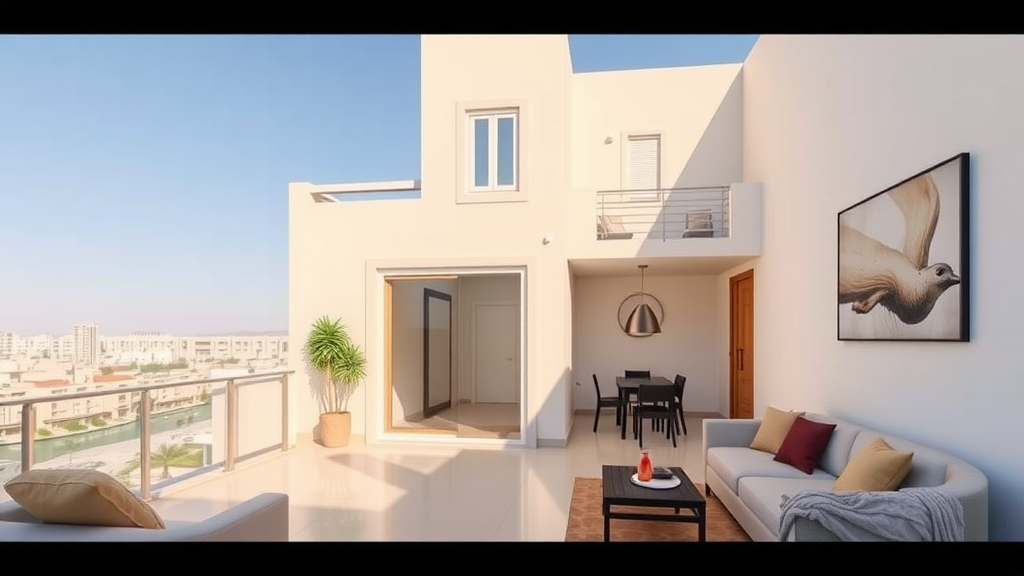The role of denmark’s banking system in shaping installment plans for foreign buyers
The banking system in Denmark plays a pivotal role in shaping installment plans for foreign buyers, particularly those interested in real estate. As more individuals from abroad seek to buy property in this attractive Nordic country, understanding how the banking system influences financing options becomes crucial. From the structure of loans offered to the regulations surrounding foreign investment, several factors within the Danish banking framework directly impact how installment plans are formulated and offered.
Understanding denmark’s banking environment
Denmark boasts a well-regulated, efficient banking system that is known for its stability. The Danish Financial Supervisory Authority oversees banks to ensure they comply with regulations that promote both consumer protection and financial stability. This oversight is integral in maintaining trust within the banking system, which is beneficial for foreign buyers looking to explore installment plans.
Loan offerings for foreign buyers
In Denmark, foreign buyers can access various loan types tailored to meet their financing needs. Banks typically offer:
- Fixed-rate mortgages: These loans feature a stable interest rate over the loan’s term, providing predictability for budget planning.
- Variable-rate mortgages: These loans start with a lower interest rate that may fluctuate over time, allowing for potential savings if rates fall.
- Interest-only loans: These loans allow borrowers to pay only the interest for a set period, which can be attractive for those who want to lower their initial payments.
Understanding the loan offerings is critical for foreign buyers as it helps them gauge what kind of monthly payments they can afford when considering real estate purchase through an installment plan.
Regulations impacting foreign buyers
One of the unique aspects of Denmark’s banking system is the regulations that govern foreign ownership of property. Foreign buyers may experience different loan conditions compared to local buyers. For instance, since many Danish banks require a higher initial deposit from non-residents, this factor inevitably shapes the installment plans offered. Generally, foreign buyers may need to put down around 20-30% of the property’s value as a deposit, which is more than what Danish citizens might require.
Foreign investment and installment plans
The Danish real estate market has been welcoming to foreign investors for years. However, this influx of foreign interest has pressured banks to adapt their installment plans to remain competitive. A few key points include:
- Higher loan-to-value ratios can be available if buyers have a strong financial background.
- Flexible repayment options often cater to varying financial situations.
- Customized installment plans are becoming prevalent, allowing buyers to negotiate terms that suit their abilities and preferences.
This adaptability helps banks attract foreign buyers, ultimately shaping the landscape of installment plans available in the market.
The impact of currency and exchange rates
When dealing with installment plans, especially for foreign buyers, the currency and exchange rates also play significant roles. If you’re purchasing a property in Denmark while earning income in another currency, fluctuations in exchange rates can affect how much you pay over time. Currency risk is an important consideration when choosing an installment plan, as it may influence your monthly payment amount. Banks usually offer advice on how to hedge against these risks, ensuring you can maintain a stable financial plan.
The future landscape of denmark’s banking system
Moving forward, Denmark’s banking system is expected to continue evolving with international financial trends. As technology enhances service delivery, foreign buyers might access more straightforward and diverse installment plans. Innovations like online banking platforms and mobile applications will likely allow buyers to manage their loans more efficiently. It will also facilitate easier access to customized solutions that meet the unique needs of foreign investors interested in Denmark’s property market.
In essence, understanding how Denmark’s banking system affects installment plans for foreign buyers is crucial for making informed real estate investments. As a potential buyer, staying abreast of regulatory changes, loan offerings, and market trends can assist you in navigating this complex landscape more effectively. Ultimately, being well-informed opens doors to favorable financial arrangements that align with your goals as a foreign buyer in Denmark.
Comparing installment financing options across different countries for international property buyers
When it comes to international property investment, understanding your financing options is crucial. Different countries have unique installment financing options that can significantly impact the buying process for foreign property buyers. This article explores various approaches used across the globe to support property purchases, allowing buyers like you to compare and choose the most beneficial plan.
United states
In the United States, installment loans, commonly known as mortgages, are widely available. Foreign buyers can benefit from a few key features:
- Flexible Down Payments: Many lenders offer 20% down payment options for foreign purchasers.
- Fixed or Adjustable Rates: Buyers can choose between fixed-rate mortgages, which provide predictability, or adjustable-rate mortgages, which can lead to lower initial payments.
- Diverse Programs: Certain programs cater specifically to foreign buyers, enabling them to navigate the U.S. real estate market efficiently.
Canada
Canada also welcomes foreign investors and has distinct guidelines for installment financing:
- Minimum Down Payment: Generally, a minimum of 35% down payment is required for non-residents, a significant factor to consider.
- Shorter Term Loans: Many Canadian lenders offer shorter terms, often ranging between 5 to 15 years.
- Foreign Buyer Tax: Be aware that provinces like British Columbia and Ontario impose a foreign buyer tax, affecting the total investment cost.
Australia
In Australia, the housing market attracts numerous international buyers, but policies vary significantly:
- Purchase Approval: Foreign buyers must receive approval from the Foreign Investment Review Board (FIRB) before making a property purchase.
- Deposit Requirements: Typically, buyers are required to make a deposit ranging from 10% to 30% of the property’s value.
- Bank Financing: Some banks may offer special packages for international buyers, typically for established properties.
United kingdom
The United Kingdom offers a straightforward process for installment financing, with several noteworthy aspects:
- Availability of Mortgages: Foreign nationals can access UK mortgages; however, they may face stricter lending criteria.
- Deposit Requirements: A minimum deposit of around 25% is common for non-residents.
- Currency Considerations: International buyers should remain mindful of currency fluctuations that could affect repayments.
Germany
Germany’s housing market is known for its stability, and foreign buyers find several options:
- Attractive Interest Rates: Interest rates are lower compared to other countries, encouraging investment.
- Long-Term Financing: Offered options can stretch up to 30 years, providing flexibility in payment structures.
- No Restriction:** There are generally no restrictions on foreign ownership, making it appealing.
France
In France, installment financing is characterized by unique elements:
- Non-Residents Eligibility: Foreign buyers can often secure loans, with some banks specializing in international clients.
- Down Payment Requirements: A minimum down payment of 20% is typical, but higher amounts can facilitate better mortgage terms.
- Language Barriers: It might be beneficial to seek advice from bilingual financial advisers to navigate the financing landscape.
Considering your options
When comparing installment financing options across different countries, it’s essential to consider factors such as down payment requirements, interest rates, and foreign buyer laws. Each nation has its advantages and disadvantages; thus, careful research will empower you to make an informed decision.
Ultimately, your experience as a foreign buyer will depend on understanding these unique financing structures. By knowing what to expect, you can better prepare for the challenges and opportunities that come with investing in international real estate.
Every country presents its unique financing landscape, benefiting from various economic, legal, and cultural factors. The key is to evaluate these options based on your financial capabilities and long-term investment goals. With thorough research and careful planning, you can navigate the pathways to successful international property investment.
Denmark’s banking system plays a pivotal role in shaping the installment plans available to foreign buyers. With its robust regulations and emphasis on transparency, the Danish market offers predictable financing options that can greatly enhance the purchasing experience for international buyers. Compared to other countries, Denmark stands out for its competitive interest rates and flexible repayment structures, making property ownership more accessible. Understanding the intricacies of Denmark’s banking policies enables foreign buyers to make more informed decisions, allowing them to navigate the complexities of installment plans with confidence.
When contrasting installment financing options with those in other countries, it’s clear that Denmark’s approach prioritizes financial stability. While some nations may offer high-risk options with fluctuating terms, Denmark’s conservative lending practices foster a sense of security. This stability not only protects buyers from sudden financial strain but also encourages long-term investment in the Danish property market.
For foreign investors, recognizing how Denmark’s banking system influences installment plans is essential. This understanding aids in comparing options and selecting the most favorable financing solution. Ultimately, investing in property in Denmark can be an appealing venture, particularly for those who appreciate a structured and transparent financial environment. By leveraging the advantages that the Danish banking system offers, foreign buyers can navigate installment plans more effectively, empowering them to make sound financial choices in their property purchase journey.










